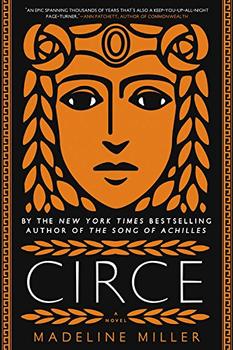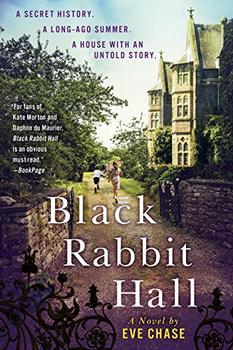Summary | Excerpt | Reviews | Beyond the book | Read-Alikes | Genres & Themes | Author Bio

Sarah Perry's latest foray into the mythic sees her tackling the legend of Melmoth, a mysterious, cloaked figure who has wandered the earth for thousands of years searching for those who have committed wrongdoing. The novel speaks to humanity's longing for redemption, while keeping its audience constantly on edge; make sure to read this one with the lights on.
Melmoth opens with the character of Helen Franklin, a woman in her forties living in Prague and working as a translator. Helen lives ascetically below her means, which seems at first glance to be a reflection of her humble character, but it quickly becomes apparent that she is hiding a dark secret. The plot begins in earnest when Helen runs into her friend Karel on the street, shaking. Upon questioning, Karel describes the legend of Melmoth, an eerie specter who wanders the earth trying to find someone to join her in eternal torment. Days later, Karel disappears, forcing Helen to consider whether the dark legend he described to her might, in fact, be real.
In addition to Helen's primary storyline, Melmoth makes use of multiple vignettes all centering around various characters' interactions with the titular being. These perspectives cover several time periods and countries; one involves seventeenth-century British aristocrats, another twentieth-century Turkish brothers. By far the most compelling and emotionally affecting of these side stories concerns Joseph Hoffman, a young German boy growing up in Czechoslovakia as it is being taken over by Nazi forces during World War II, and his evolving relationship to a Jewish family. As his interactions with them become increasingly strained, and his choices more questionable, Melmoth begins to appear to him, tempting him to join her in her isolation, and thus save himself from the consequences of his actions. In taking the reader out of the limitations of Helen's perspective, Hoffman and the other figures serve to globalize the reader's conceptualization of Melmoth, emphasizing that there is no escape from her far-reaching gaze.
The novel's primary draw is its Gothic atmosphere; Melmoth shrouds the reader in the same cloak of shadow and secrecy that its characters find themselves in. At first glance, Perry's descriptions of characters wandering down streets lit by a single lamp, followed by shadows that seem to move of their own volition, or feeling a presence watching from the corner might seem repetitive, but over time it becomes apparent that this is an intentional stylistic choice. Depicting her characters under constant surveillance, Perry makes the reader feel that they, too are being scrutinized, emphasizing that Melmoth is always there, observing, storing secrets and bearing witness to humanity's evil. In a particularly eerie passage, Perry describes Melmoth by writing, "She'll follow you down paths and alleys in the dark, or come in the night and sit waiting at the end of your bed – can you imagine it, feeling the mattress sink and the sheets move?" Perry cleverly makes the reader an active participant in the story as the narrator addresses the audience directly. This continual conversation between the narrator and the reader makes the possibility of Melmoth's existence feel like an inevitability, and will have you constantly looking over your shoulder to make sure that you really are alone.
Despite the gorgeous atmosphere with which Perry surrounds her titular villain, Melmoth herself falls somewhat flat. Her threatening presence is seemingly building to an explosive reveal that never occurs. The tragic undertones of Melmoth's story are alluded to throughout the novel, but are never really explained; a backstory never materializes for her. However, arguably Melmoth is not meant to be viewed as a singular character with her own story; rather she is a physical representation of humankind's darker tendencies, which we must constantly be fighting against.
Melmoth is a chilling Gothic tale; Perry's third novel mixes an enthralling atmosphere with beautiful prose to create a literary achievement that is distinctly memorable.
![]() This review was originally published in The BookBrowse Review in October 2018, and has been updated for the
October 2019 edition.
Click here to go to this issue.
This review was originally published in The BookBrowse Review in October 2018, and has been updated for the
October 2019 edition.
Click here to go to this issue.

If you liked Melmoth, try these:

by Madeline Miller
Published 2020
Winner of the 2018 BookBrowse Fiction Award
The daring, dazzling and highly anticipated follow-up to the New York Times bestseller The Song of Achilles.

by Eve Chase
Published 2017
For fans of Kate Morton and Sarah Waters, here's a magnetic debut novel of wrenching family secrets, forbidden love, and heartbreaking loss housed within the grand gothic manor of Black Rabbit Hall.
Your guide toexceptional books
BookBrowse seeks out and recommends the best in contemporary fiction and nonfiction—books that not only engage and entertain but also deepen our understanding of ourselves and the world around us.